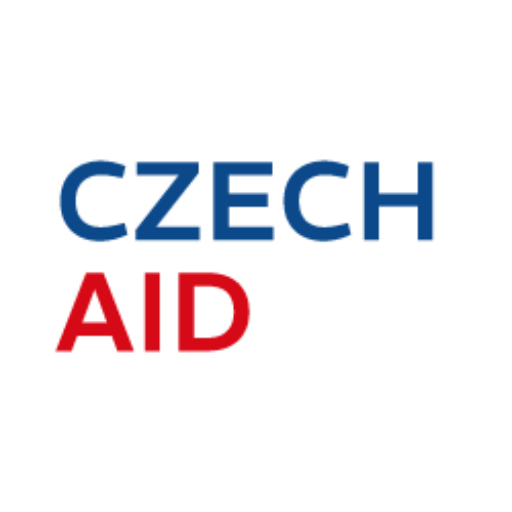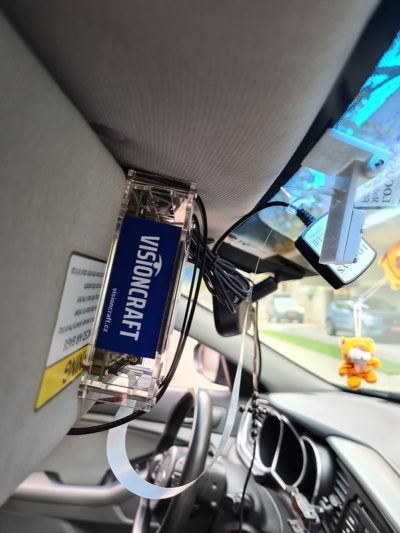How to detect road damage with a smart solution?
An interview with Mr. Robert Pinkas – CEO of Czech company VisionCraft.
Within the Czech-UNDP Partnership modality Challenge Fund, Czech technological company VisionCraft implements together with their local partner GlobalPort LLC project on Road Asset Management system using AI.
Today project innovator Mr. Pinkas will talk about his experience from Georgia and the ways this solution can support improvement in the road quality in the country.
- This is your first Challenge Fund project. How did you first hear about the opportunity to apply and how was the application process for you?
We found out about the UNDP program from a business partner of ours, who has gone through the program before, so word of mouth. We met at a CzechTrade event in Budapest, where we actually met our future UNDP local partner from Georgia, who was very interested in our innovative technology. The application and the webinars explaining how to apply were simple and compared to other programs very straight forward. Most importantly, the process and requirements were not complicated by unnecessary administrative documentation.
2. Could you please briefly explain what your innovation does and why is it beneficial for Georgia?
We created unique technology to detect road defects with on-board sensory system in real time. The novelty of the proposed system lies in the autonomy of the sensor and in the timeliness of data it provides for road owners. The image information from the camera is processed in the sensor, privacy is ensured, and the damage characteristics are sent for processing. viRAM ( sensors that process all data) not only detects the damage but also records the damage repairs. Georgia has over 21,000 Km of roads. To monitor every kilometer by human or heavily specialized vehicle, would amount to Millions of EUR per year. It would in addition create a significant CO2 footprint, as these roads would have to be travelled by these one-purpose vehicles. Our POC with viRAM would include several sensors, that would in real-time collect data from vehicles owned by the state or local government or its agencies, that already drive on the roads in Georgia, but would produce this road quality data immediately after its calibration at the start of the project.
3. VisionCraft has already traveled to Georgia to kick-off the pilot phase of the project. What are some specifics of working in Georgia that you immediately noticed compared to other countries where you work?
When we check road quality the differences are generally not that great. We need to change the detection algorithms to reflect different width of roads, pavement color and possibly color of lanes which are painted on the roads. Also each governmental entity that is responsible for roads has different classification of road defects and different IT systems where these findings are logged. We were able to collect hundreds of gigabytes of data to re-train our detection algorithms after returning back to our offices. These new software parts will be now uploaded to the Georgian sensory units and as such will be detecting hundreds of kilometers of roads in around Tbilisi and the results will be uploaded to a database outcome which will be then shared with the local transportation authorities. One nuance is a local business culture, which is usually a bit specific, no matter where we go. And that is the payment and negotiations culture. People in Georgia are very open and straight forward in the aspect of talking business and fees necessary to invest.
4. The pilot phase of your project has started in November, do you have any preliminary results that you could share?
As described above, we were able to detect defects in the tested part of the local roads and now are in process of evaluating the results.
5. Could you please share your experience as somebody from private sector what are the main advantages for you to cooperate on a project with UNDP?
There are many advantages, but two main ones come to mind right away. 1) The project is not only beneficial from the financial point of view – meaning there is a possibility to receive funds to pilot test a new technology that could help local government reach results, but the project is coordinated by professionals, who physically support the success of the project by introducing us as the vendor to valuable local contacts and resources and 2) we receive advice and direction on how to successfully complete all the necessary paperwork, which is then left to a minimum and we can focus on our real expertise, which is working on the innovative technology and creating impactful results for the end client – the road owners in Georgia.
6. What are the plans for the future to further scale-up this project?
The possibility to test our innovation on hundreds of kilometers is truly only a test and we already found not only local road owner agencies who require the monitoring of road quality, but another set of use cases, that can be covered by the same technology and are of importance to the local authorities. One of the best parts of the project is that our local partner is also connected with other projects in neighboring countries.
7. Last question, what would be your advice for any start-up/private sector company considering to apply for Challenge Fund?
Get in contact with the Czech-UNDP Partnership, get on their mailing list and watch the website for any new project call as this is one of the most efficient ways to utilize grant funds we have seen so far. The most important thing we see is that the program focuses on real-world projects and value brought to the end clients. It is not a research project talking about possible use of technology for the benefit of mankind – this project pushes the company to deliver the actual product!
About the Challenge Fund
VisionCraft project in Georgia is a part of the Challenge Fund – Czech Solutions for SDGs. Through the Challenge Fund, the Czech-UNDP Partnership for SDGs brings innovative solutions from the Czech Republic’s private sector, NGOs, universities, state institutions, research centers and individuals to tackle specific developmental challenges in the priority countries. The implementation of Challenge Fund projects is financially supported by the Ministry of Foreign Affairs of the Czech Republic.





